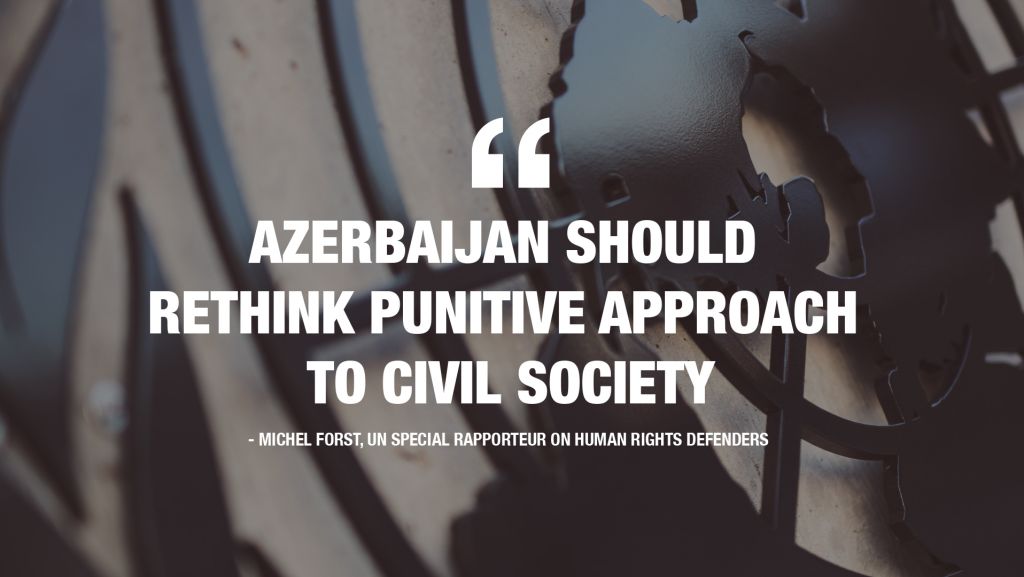Since the order by the Ministry of Justice of the Republic of Azerbaijan to the Human Rights House Azerbaijan to cease all its activities in March 2011, the Human Rights House Foundation (HRHF) has campaigned with partner non-governmental organisations (NGOs) to highlight the continuous deterioration of the human rights situation in Azerbaijan, especially with regard to freedom of expression, association, and assembly, and the right to be a human rights defender. As HRHF documented in its report with Freedom Now, “During 2014, the authorities rounded up the county’s most well-known civil society leaders and audaciously even targeted those who monitored and documented the cases of political prisoners.”
Today, at the press conference ending his visit to Azerbaijan, the Special Rapporteur Michel Forst called upon Azerbaijan to “rethink [its] punitive approach to civil society.”
The Special Rapporteur’s findings follow those of the Working Group on Arbitrary Detention from May 2016. These United Nations experts raised concerns about recent detentions of protestors and journalists. In its own intervention at the Human Rights Council, HRHF spoke of the new wave of arrests in the run-up to referendum to be held on 26 September 2016, in which the authorities have arrested activists such as Natig Jafarli, Elshan Gasimov, Togrul Ismayiıov, Bakhtiyar Hajiyev, and Elgiz Qahreman for criticising the referendum and participating in peaceful protests and actions.
The Special Rapporteur also raised the issue of restrictions on NGOs, referring to “drastic impediments to the right to freedom of association, caused by the 2013-2015 legislative amendments to laws regulating civil society operations,” and that “the already challenging environment for NGOs has turned into a total crisis.”
The Special Rapporteur urged Azerbaijan to “review and abolish all administrative and legislative provisions that restrict the rights of defenders, including to freedoms of expression, assembly and association, and ensure that domestic legislation respects basic principles relating to international human rights law and standards.”
He further called on Azerbaijan to “release all human rights defenders in detention, drop criminal charges against NGO leaders and employees, rescind travel bans and unblock their bank accounts in line with the resolutions and recommendations from international and regional mechanisms.”
Former political prisoners released in spring 2016, such as as human rights lawyer Intigam Aliyev and journalist Khadija Ismayil, still face impediments in their work, such as having their bank accounts and those of their organisations frozen, and facing restrictions on their ability to travel.
“We acknowledge the Azerbaijani authorities’ constructive action in inviting international human rights mechanisms to visit the country,” commented Florian Irminger, HRHF’s Head of Advocacy. “The State must now implement the recommendations of all these visits, as well as previous decisions and recommendations made by the European Court of Human Rights and the Council of Europe, the European Parliament, and the OSCE. As highlighted by the Special Rapporteur himself, assessments by these international mechanisms have all found the same thing: a worsening situation for human rights defenders, civil society, and individual freedoms in Azerbaijan.”
“Reports without implementation will not end the widespread use of arbitrary detention and the systemic persecution of civil society organisations and human rights defenders, nor will they create the much-needed enabling environment for civil society. In the absence of any clear sign that the recommendations of the Special Rapporteur will be taken seriously, the international community will need to step up to raise support for civil society and human rights defenders in Azerbaijan, at the Council of Europe and the United Nations,” further commented Florian Irminger.





